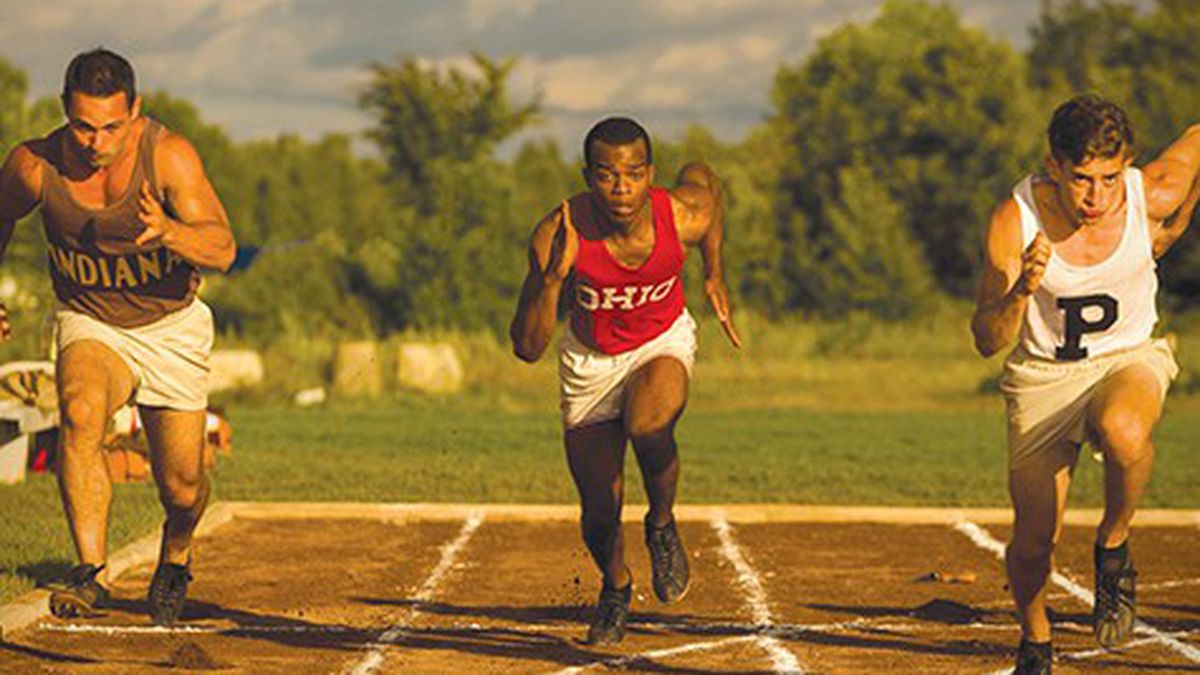Coming as it does in the midst of the latest chapter in America’s ongoing agony over racial relations, the historical sports drama Race is ideally positioned to be a high-impact cultural think piece — or at least a rip-roaring affirmation of the importance of African-American heroes. Something like 42, or even Selma. That’s what we were hoping for, but director Stephen Hopkins’ retelling of the legend of track and field superstar Jesse Owens (played by actor Stephan James) and his four-gold-medal triumph over hatred in the 1936 Berlin Olympic Games lacks the snap, crackle, and pop such a true-story victory deserves.
The saga of Owens’ heroism is a compelling one. Despite his slight stature, J.C. “Shorty” Owens — the name Jesse came from a reporter’s misunderstanding — rises from his humble Cleveland background to the heights of US track and field, starting with a stint at Ohio State University alongside coach Larry Snyder (Jason Sudeikis). With Snyder as his mentor, the supremely talented sprinter/long-jumper makes the US Olympic team in time for an epic confrontation in Berlin: the Americans, including Black and Jewish athletes, up against Hitler’s “Aryan supermen.” When Owens collects the gold it’s a major loss of face for Herr Anti-Diversity.
Actor James projects his own quiet brand of downtrodden dignity, but for some unknown reason the screenplay — by UK writers Joe Shrapnel and Anna Waterhouse — contrives to make Jesse look uncomfortably dull. At one point, Jesse’s wife Ruth (Shanice Banton) admonishes her husband: “Don’t think too much, it’s not what you’re good at.” That’s an odd line of dialogue for the bio of a sports legend. Owens is not exactly a willful ball of fire à la Jackie Robinson, but why belabor the point? The athletic action scenes at the Olympics are fine and dandy. So is Sudeikis as the principled coach Snyder. But when Jesse’s not running and jumping, he seems to recede into the scenery.
Behind all this lurk two or three subplots, most intriguingly the actions of the US Olympic committee and its flamboyantly patrician leader, Avery Brundage, in a scenery-chewing performance by Jeremy Irons. To boycott Hitler’s Olympics, or not to boycott? The largest irony of several in the film is the firmly planted idea that to Jesse and his fellow Black competitors, the race hatred of the Nazis — with prissy propaganda minister Joseph Goebbels (Barnaby Metschurat) out front — appears only slightly worse than what they’re experiencing every day back home in the states.
Let’s not even try to surmise what the filmmakers meant by portraying the notorious Leni Riefenstahl (Carice van Houten), Nazi auteur of Olympia and Triumph of the Will, as a sympathetic charmer. How dare director Hopkins and his writers make Riefenstahl a more dynamic character than Owens? Race, a Canadian-French-German production, mixes its messages and dilutes its advocacy to the point where it’s almost incomprehensible. With the current Academy Award protests as a persistent real-life backdrop, couldn’t anyone come up with a better portrait of Jesse Owens and his times than this?

















